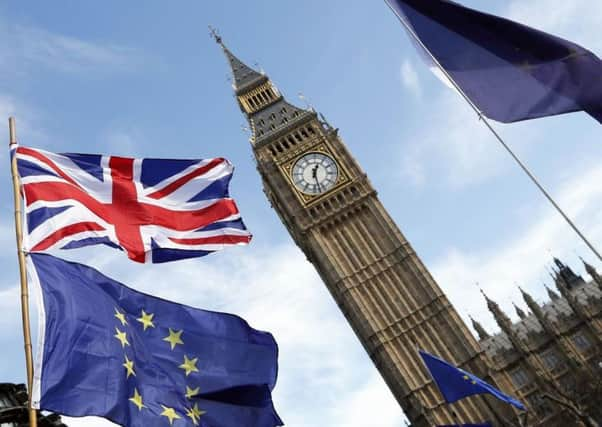YP Letters: Customs union move another nail in the coffin for House of Lords


IN response to Lord Newby (The Yorkshire Post, April 21), the vote was simply to ‘leave the EU’; that didn’t mean leave it in part.
Some – not all – Remainers, but it seems all Liberal Democrat Party members are in doubt about the outcome of the EU referendum.
Advertisement
Hide AdAdvertisement
Hide AdSo, in case there’s any misunderstanding, here, from a search engine, is an unchanged list, defining the word ‘Leave’...“depart from, go away from, go from, withdraw from, retire from, take oneself off from, exit from, take one’s leave of, pull out of, quit, be gone from, decamp from, disappear from, abandon, vacate, absent oneself from, evacuate; say one’s farewells/goodbyes, make off, clear out, make oneself scarce, check out; abscond from, run away from, flee (from), fly from, bolt from, go AWOL, take French leave, escape (from); informal- push off, shove off, cut, cut and run, do a bunk, do a disappearing act, split, vamoose, scoot, clear off, take off, make tracks, up sticks, pack one’s bags, flit; informal – sling one’s hook”.
Such are the definitions that the electorate understood when making their choice in the referendum. The words ‘ifs’, or ‘buts’, or ‘depending upon’, do not occur, nor did voters expect them to be an addendum to the result.
The arguments by both sides leading up to the referendum were largely exaggerated, misleading and often false – it’s what ‘sides’ do! Many of them were based upon projections that disregarded the human element – if people and businesses can’t already swim, then they learn to; drowning is never a choice.
There can be no argument that the electorate were propositioned only by the Leave campaigners, or that one element, for example a customs union or single market, was never considered. The public are not naive. They understood the distinctions between the choice, and the majority chose to Leave.
Advertisement
Hide AdAdvertisement
Hide AdSome people argue that the majority decision was marginal, therefore neither decisive nor actionable. Any politician who either wins or loses a seat based on a majority of two or three always accepts the result. Votes in Parliament often have slim majorities, nevertheless they’re always accepted – the losers don’t call a re-run.
And finally the House of Lord’s Amendment 1 to the EU Withdrawal Bill – “negotiate a customs union as part of the framework for a future UK-EU relationship”. That has to be another nail in the coffin of the House of Lords. Have more faith in Britons and British business, Lord Newby and peers.